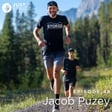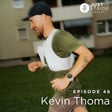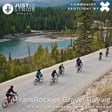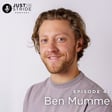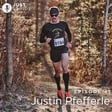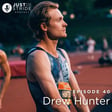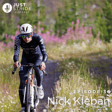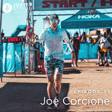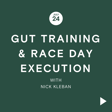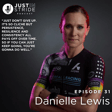
Remi Leroux on sub-ultra mountain running, his love of tennis, progression in the sport, racing shorter but faster, training methods, running lifestyle, opportunity to travel, the pursuit of excellence, finding our limits
When I first started running 14 years ago and signed up for races, I fell into the trap of wanting to jump into the next distance too quickly. A 10K turned into a half marathon which then led me to a marathon shortly after. I didn’t know much about the sport back then but if I had to go back I would stick with one distance for a while longer until I was comfortable to move up. Recently I’ve been racing some shorter stuff and I have to say I’m loving it. Preparing with less mileage, running fast, racing strategically and recovering quicker too. So if your goal is a marathon or ultra this year, find a fast 5 or 10K to get you out of your comfort zone, you might surprise yourself.
On this episode of Just In Stride I hit the trails with Elite sub-ultra marathoner, Remi Leroux.
In his youth he loved playing tennis and excelled at it. Despite his success he decided to give it up due to the lack of resources he felt he needed to remain competitive.
In fact, that’s what drew him to running so much. The idea that he could run anytime, anywhere, without training partners and really be in control of his results, made distance running very attractive. Remi progressed quite rapidly, signing up for a 5K and quickly jumped up to longer distances, leading him to the Ultra trails.
After years of ultra marathons, he realized he’d much rather race fast and challenge himself on the shorter mountain tracks. That transition has led him to some impressive results, racing 30 times in the last 2 seasons and finishing on 9 podiums in 2023 alone. Proof that running the distances you’re passionate and training for specific goals could be the key to your own success.
-------
Offer from Xact Nutrition: This episode is presented by our friends at Xact Nutrition and they are offering you 15% OFF your order when you use the code JUSTINSTRIDE. So head to xactnutrition.com and fuel your goals today! Now shipping in Canada and the U.S.
Thanks for tuning in to the Just In Stride Podcast. I truly appreciate you taking the time to listen and I hope you enjoyed that conversation as much as I did. Please take a minute after this to rate and review our show on Apple Podcasts. With your feedback we’ll be able to make the show even better and it’ll help us reach new listeners too. You can also find us on Instagram @justinstridepod and YouTube @justinstridepod for all the latest episodes and updates. Glad you came along for the ride with Just In Stride!
